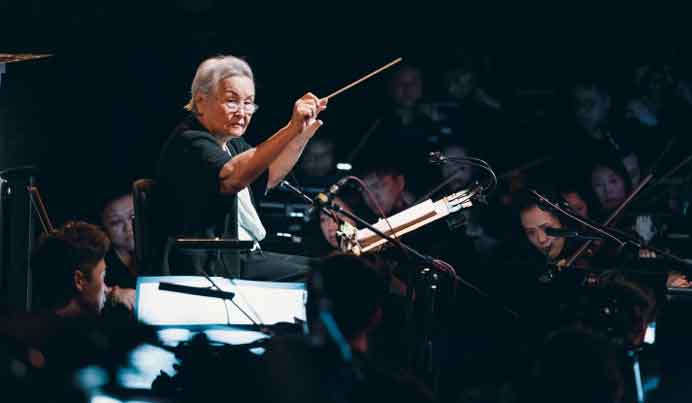| |
|
| |
|
|
1929
|
Zheng Xiaoying 郑小瑛, China's first female conductor, was born on September 28
|
| |
in Longyan, Fujian Province China.
|
|
|
|
| |
Studies |
|
1947
|
She studied at Jingling Women's University in Nanjing.
|
| |
During the Chinese Revolution, she formed a song and dance troup, and conducted
|
| |
chinese operas. |
|
1952
|
She took classes with Nicolai Tumascheve, who taught her chorus-conducting.
|
|
1956 - 1960
|
She taught at the Conservatory of Music.
|
| |
|
|
1960
|
She left to study opera conducting at the Tchaikovsky State Conservatory in Moscow.
|
|
|
She conducted : La Tosca at the Moscow National Theater.
|
|
1963
|
Upon her return in China, she taught until the Cultural Revolution.
|
| |
|
|
1977
|
She became the principal conductor of the National Opera of China.
|
| |
She directed performances of the Western repertoire : la Traviata - Carmen - Le Nozze
|
| |
die Figaro - Madama Buterfly... |
|
1993
|
She founded the Ai Yue Philharmonic Orchestra, the first all-female orchestra to perform
|
| |
worldwide.
|
| |
|
|
1997
|
She moved to Xiamen.
|
|
1998
|
She formed the internationally renowned Xiamen Philharmonic Orchestra.
|
|
2013
|
She decided to retire.
|
| |
|
| |
Daniele Sicard |
| |
|
|
•
|
| |
|
| |
Awards selection |
| |
|
|
2011
|
The Gilden Melody Prize
|
from the Chinese Musicians'Association |
|
2012
|
Named Chinese Culturel Figure
|
for her contribution to music education
|
| |
|
and conducting
|
|
2014
|
Named Honorary Conductor for Life
|
by the China National Opera House
|
| |
|
|
|
|
|
|
|
•
|
| |
|
|
|
|
| |
|
•
|

![]()